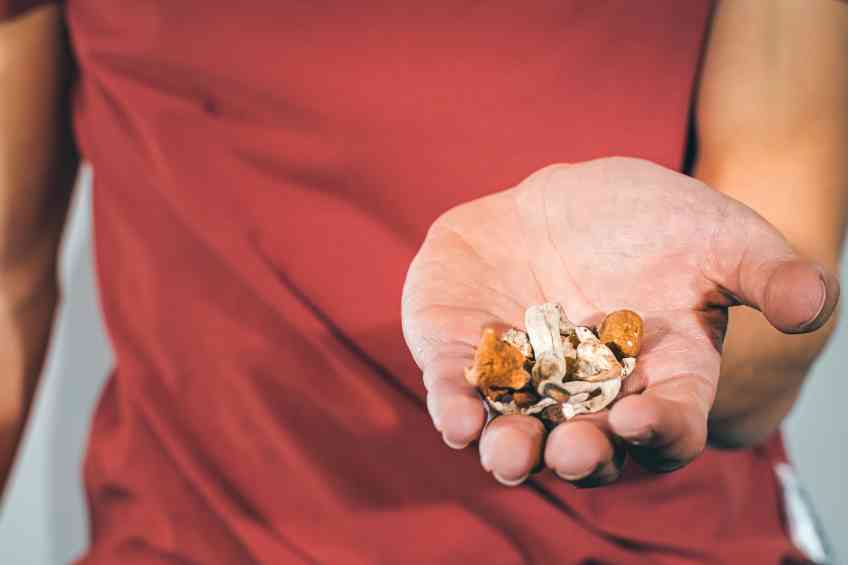The Skinny:
Think of mushrooms, and several things come to mind. They are prized for their distinct flavor; they can be hard to find in the wild, and some fungi (think truffles) are extremely rare and expensive. A few mushrooms are deadly, and a portion can make people sick. Most don’t realize, however, that “good” mushrooms have significant health benefits. Of course, it may be tricky to find these since there are more than 10,000 different types of mushrooms worldwide. The good news is that over half are theoretically edible, but a hefty portion of the technically safe shrooms never find their way into foods because they taste like wood or leaves. Ultimately, when the tasteless mushrooms are eliminated, and the ones that make people sick, or worse, dead, are tossed aside, only about 4 percent of the world’s mushrooms are edible. That’s still about 400 shrooms worldwide—many of which have various nutrients, antioxidants, fiber and protein. These benefits make mushrooms a low-calorie, high-fiber superfood that can help lower the risk of developing conditions like Alzheimer’s, cancer, heart disease and diabetes. Still not sure about mushroom benefits or which ones are the healthiest? Don’t worry. WellWell has it covered. We’ve identified seven winners. Read on.
The Slate:
White Button, Cremini & Portobello
These are the most popular mushrooms in the US, accounting for 90 percent of national production and some of the healthiest. The average American consumes about 2 pounds of these shrooms annually. They include antioxidant, anti-inflammatory, immunomodulating, anti-cancer, antimicrobial, cholesterol-lowering, antidiabetic, hepatoprotective and neuroprotective properties.
Chantarelles
These mushrooms are highly seasonal and expensive because they grow wild and come in varieties. They range from white to yellow and saffron. They offer a range of benefits, including bioactive compounds such as beta-carotene when added to their antioxidant and anti-inflammatory properties, vitamin A supports bone health and immune function. They also hold vitamins D and B12, which should be welcomed news for vegetarians and vegans.
Enoki
These fungi are button-headed, long-stemmed and crunchy. Also called winter, velvet shank, golden needle or lily mushrooms; they are extremely popular in Asian dishes. They have a sweet taste because of their inherent alanine, glycine, threonine and serine. Bioactive polysaccharides, fungal immunomodulatory proteins and ribosome-inactivating proteins help support immune functions. They also have anti-cancer, anti-allergy, antibacterial, antiviral and anti-inflammatory properties.
Lion’s Mane
Large, white and shaggy hence the name, these mushrooms reportedly have a seafood taste that makes them popular in various Asian foods. They are adaptogenic, meaning they promote nerve growth and recovery. They are also used to fight degenerative neurological problems, mild depression and anxiety. It is reported that they can help protect against ulcers, reduce the risk of heart disease, help lower blood sugar and fight cancer. Their antioxidants and anti-inflammatory agents reduce oxidative stress and inflammation, boosting immune system functioning.
Morel
There are plenty of different morels, but they all tend to have a meaty and nutty flavor. They are usually found in the wild during springtime. Research maintains they support immunostimulatory, anti-tumor, anti-inflammatory and antioxidant properties. They also provide a sizeable about of vitamin D.
Oyster
Oysters are frilly and sizeable, growing up to 10 inches in diameter. Popular in Chinese medicine, one 86-gram cup has 28 calories, 2.9 grams of protein, 5.2 grams of carbohydrates and 0.3 grams of fat. They also hold niacin, riboflavin and fiber while having beta-glucan and other immune-boosting polysaccharides.
Shiitake
These mushrooms have an amino acid content similar to meat, making them perfect for those on a meat-free diet. Shiitake are great in soups and stews and are usually found in Chinese American dishes. Their sterols, eritadenine and beta-glucans are believed to be able to help lower blood sugar levels in people with diabetes and fight high cholesterol.
Eyes Up:
Do you have a favorite mushroom? Let us know at info@wellwellusa.com.
WellWell editors independently identify services and products of interest. If readers purchase anything through the associated links, WellWell may earn a commission, which goes to support our work. Learn More.













